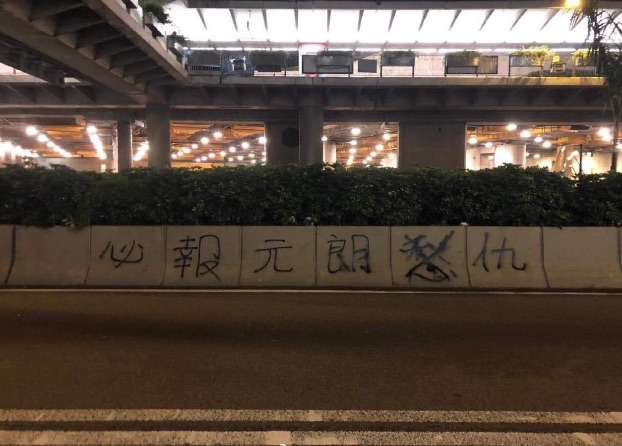Graffiti correction
« previous post | next post »
Writing on a concrete planter in Hong Kong:
At first they wrote:
bì bào Yuánlǎng chóu
必報元朗愁
"must avenge the sorrow of Yuen Long"
This was changed to:
bì bào Yuánlǎng chóu
必報元朗仇
"must take revenge for Yuen Long"
"Yuen Long" is a reference to the MTR station where a masked, white-shirted gang of about a hundred thugs viciously and indiscriminately beat passengers on a train, not all of whom were returning from a protest march earlier in the day. See the last paragraph of this post, "The enigma of the black hands" (7/25/19), also here, here, here, and here.
報仇 and 報愁 are perfectly homophonous, both in Mandarin (bàochóu) and in Cantonese (bou3sau4), and they are loosely synonymous, but 報仇 ("take revenge") is far more common (3,840,000 ghits) than 報愁 ("avenge sorrow"; 77,100 ghits), and makes better sense in this context than does the latter, so the person who crossed out 報愁 ("avenge sorrow") and replaced it with 報仇 ("take revenge") is justified in making the change. It is unlikely that anyone will change 報仇 ("take revenge") back to 報愁 ("avenge sorrow").
[h.t. Zeyao Wu]

Çay Ocağı said,
July 27, 2019 @ 2:39 am
I don't have much experience with Chinese characters, but the stroke order of 必 in the graffiti looks like it is based on the appearance in modern fonts, like a 心 with a 丿slash through it.